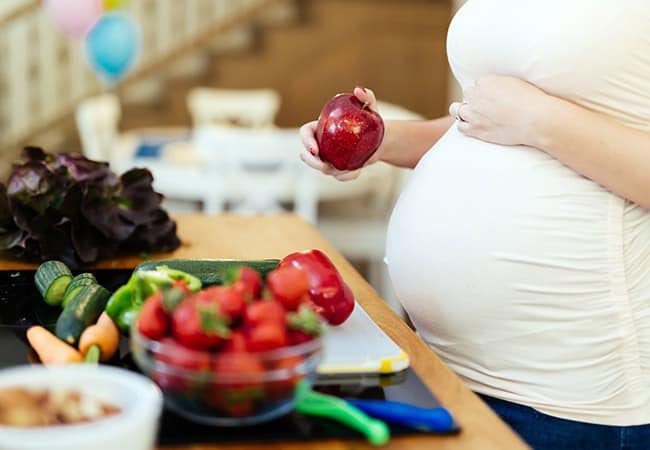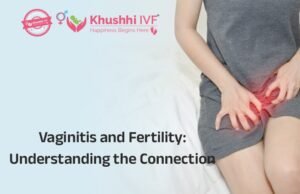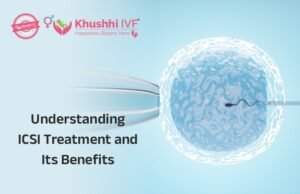Infertility is a growing concern for many couples. Diet plays a crucial role in improving fertility. Including the right fatty foods in your meals can boost reproductive health. At Khushhi IVF Centre, we guide patients on how to enhance fertility naturally. This article highlights essential fatty foods that can help.
Why Healthy Fats Matter for Fertility
Fats are important for hormone production. Balanced hormones improve fertility. Healthy fats are needed for reproductive health in both men and women. Fertility issues can often be managed with the right diet. The best IVF hospital in Ahmedabad, Khushhi IVF Centre, provides dietary counseling as part of advanced infertility treatments in Ahmedabad.
Essential Fatty Foods for Fertility
1. Avocados
Avocados are rich in monounsaturated fats. These fats improve egg quality and implantation. Patients undergoing IVF treatment with high success rates in Ahmedabad are advised to include avocados in their diets.
2. Nuts and Seeds
Nuts and seeds contain omega-3 fatty acids. Omega-3 helps regulate ovulation and improves sperm health. Almonds, walnuts, flaxseeds, and chia seeds are beneficial. These foods are often recommended alongside low sperm count treatment in Ahmedabad.
3. Fatty Fish
Fatty fish like salmon, mackerel, and sardines are packed with omega-3s. These support healthy blood flow to reproductive organs. They also enhance embryo development. At Khushhi IVF Centre, embryo freezing in Ahmedabad is supported with nutritional guidance for optimal outcomes.
4. Olive Oil
Olive oil is a heart-healthy fat. It reduces inflammation and supports fertility. Cooking with olive oil is suggested for patients receiving IVF treatment in Ahmedabad.
5. Full-Fat Dairy
Full-fat dairy products, like milk, yogurt, and cheese, improve ovulation. Studies show that full-fat options are better for fertility than low-fat ones. Female infertility treatments at the most trusted IVF hospital in Ahmedabad often include full-fat dairy in dietary plans.
6. Eggs
Eggs are rich in healthy fats and choline. These nutrients improve embryo quality. Vitrification – egg, embryo, sperm freezing procedures at Khushhi IVF benefit from a nutrient-rich diet.
7. Dark Chocolate
Dark chocolate contains healthy fats and antioxidants. It reduces stress, which can impact fertility. A small piece daily is encouraged for couples seeking affordable fertility treatment in Ahmedabad.
Benefits of Healthy Fats for Male Fertility
Healthy fats improve sperm quality and count. Low sperm count treatment in Ahmedabad often includes dietary changes. Omega-3 fatty acids are especially effective for male fertility. Fertility-enhancing surgeries for males at Khushhi IVF Centre are supported with personalized nutrition plans.
Advanced Infertility Treatments in Ahmedabad
Khushhi IVF Centre provides advanced infertility treatments in Ahmedabad. Treatments are tailored to individual needs. IVF success with the first cycle in Ahmedabad is prioritized with a holistic approach. Fertility-boosting diets are included in the plan.
Expert Guidance at Khushhi IVF Centre
At Khushhi IVF Centre, Dr. Dipesh Sorathiya in Ahmedabad leads a team of specialists. Patients receive the best IVF and infertility treatment in Ahmedabad. Fertility counseling is part of the process. Lifestyle changes, including diet, are addressed.
Affordable IVF Treatment in Ahmedabad
Affordable IVF treatment in Ahmedabad is available at Khushhi IVF Centre. High-quality care is offered at reasonable costs. Fertility-enhancing surgeries for females and males, IUI treatments, and andrology treatments are provided at affordable prices.
Comprehensive Fertility Solutions
Khushhi IVF Centre offers a range of services:
-
Endoscopy treatment
-
ICSI treatment
-
Embryology
-
Preimplantation Genetic Testing (PGT)
-
Donation programs for embryos, eggs, and sperm
The IVF clinic with advanced technology ensures cutting-edge care.
Location and Accessibility
Khushhi IVF Centre is conveniently located on SG Highway, Ahmedabad. The clinic is easily accessible for patients seeking the best IVF center in Ahmedabad.
Nutritional Tips for Fertility
-
Include healthy fats in every meal.
-
Avoid trans fats, found in processed foods.
-
Pair fatty foods with fruits and vegetables for balanced nutrition.
-
Stay hydrated to support overall health.
Why Choose Khushhi IVF Centre?
Khushhi IVF Centre is the most trusted IVF hospital in Ahmedabad. Patients receive care from the leading reputed IVF doctor in Ahmedabad. The clinic offers low-cost IVF treatment with high success rates. The team is experienced in all aspects of fertility care.
Conclusion
Improving fertility naturally is possible with the right diet. Healthy fats play a vital role. At Khushhi IVF Centre, comprehensive fertility care is provided. The most experienced doctor in Ahmedabad for IVF treatment ensures personalized solutions. Trust Khushhi IVF Centre for affordable and advanced infertility treatments in Ahmedabad.





